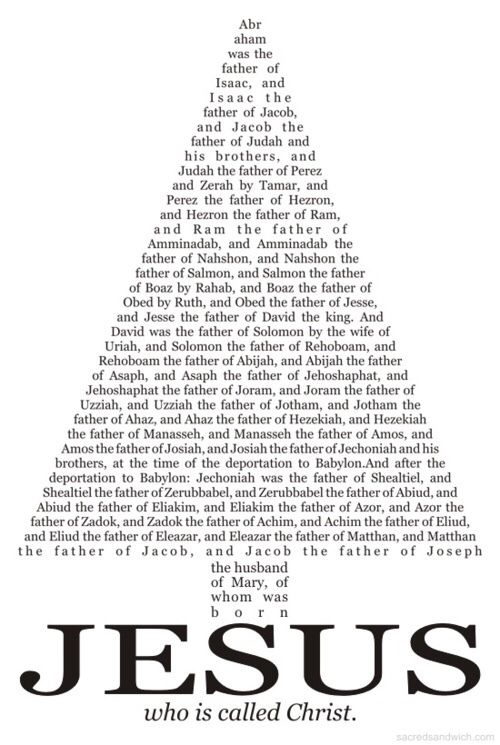
The Bible can help us plot our place in a fruitful family tree nourished by a royal bloodline. Matthew’s gospel traces that line back to Abraham, but the first line gives us the CliffsNotes version, short and sweet: Jesus Christ—the son of David—the son of Abraham. The first reading for this Sunday’s Mass (Is 7:10-14) introduces us to one of those lesser-known relatives: King Ahaz. He falls somewhere in the middle of the many generations between Abraham, David and Jesus. As a representative of the House of David, Ahaz was not the greatest standard bearer, as the Prophet Isaiah implies. In fact the Bible shows Ahaz was a pretty wishy-washy leader. When it came to choosing a faith for his people, he seemed satisfied to let the House of Israel go out on the market and pick one. Even when pressed by Isaiah to man-up and be a leader, Ahaz chose to play politics rather than blaze the trail of faith for his people, as the first reading illustrates:
The LORD spoke to Ahaz, saying: Ask for a sign from the LORD, your God; let it be deep as the netherworld, or high as the sky! But Ahaz answered, “I will not ask! I will not tempt the LORD!” Then Isaiah said: Listen, O house of David! Is it not enough for you to weary people, must you also weary my God? Therefore the Lord himself will give you this sign: the virgin shall conceive, and bear a son, and shall name him Emmanuel.
In Sunday’s second reading (Rom 1:1-7), Paul tells the Romans that in the Christian genealogy, he himself is a slave to that spiritual bloodline between Jesus and God the Father. He doesn’t ignore the Davidic bloodline, but he worships Jesus’ holy spiritual connection to Kingship in which lies humanity’s salvation.
[Jesus was] descended from David according to the flesh, but established as Son of God in power according to the Spirit of holiness through resurrection from the dead.
That flesh-and-bloodline from David shouldn’t be ignored, though, because it gave us Joseph—Jesus’ earthly father—who, besides Jesus, has one very important thing in common with our heavenly Father: supreme loyalty to their brides. Neither Joseph nor God abandoned their brides when cheating was in question. As Sunday’s gospel tells us (Mt 1:18-24), when Joseph discovered Mary was with child, his doubts about Mary’s faithfulness were quickly dispelled by Jesus’ Father in Heaven, courtesy of angelic intervention:
[T]he angel of the Lord appeared to him in a dream and said, “Joseph, son of David, do not be afraid to take Mary your wife into your home. For it is through the Holy Spirit that this child has been conceived in her. She will bear a son and you are to name him Jesus, because he will save his people from their sins.”
Those people the angel mentioned represent what we now know as a universal church—which is also called Christ’s bride in scripture. As we know, to this day, that bride has not always been faithful. And as the Old Testament tells us several times, the church of Israel was often a cheating spouse . However, like Joseph, God the Father and God the Son have always stayed loyal to their spouses. With Jesus’ birth, the tradition of Godly faithfulness despite humanity’s faithlessness transitioned from the Old to the New Testament—and to a New Covenant, written in flesh and named Emanuel—God with us. That name represents the perfection of a royal and loyal bloodline. It is our inheritance. Why not claim that divine loyalty as our Christmas gift and pay it forward to our brothers and sisters?
–Tom Andel